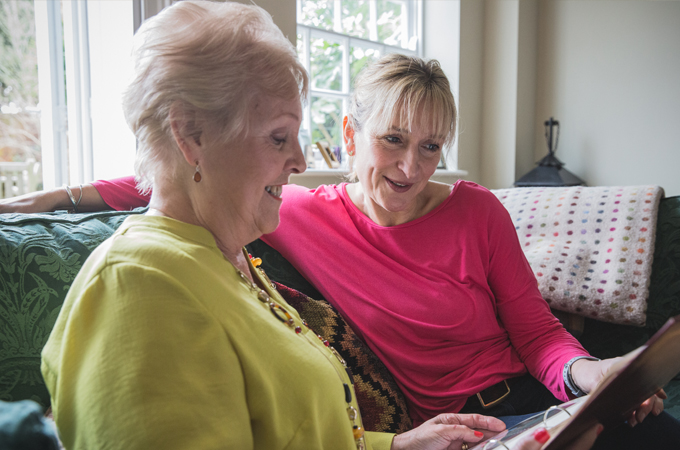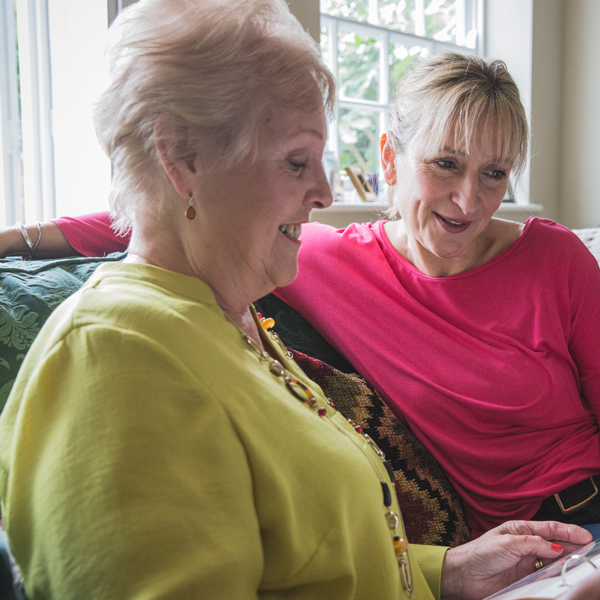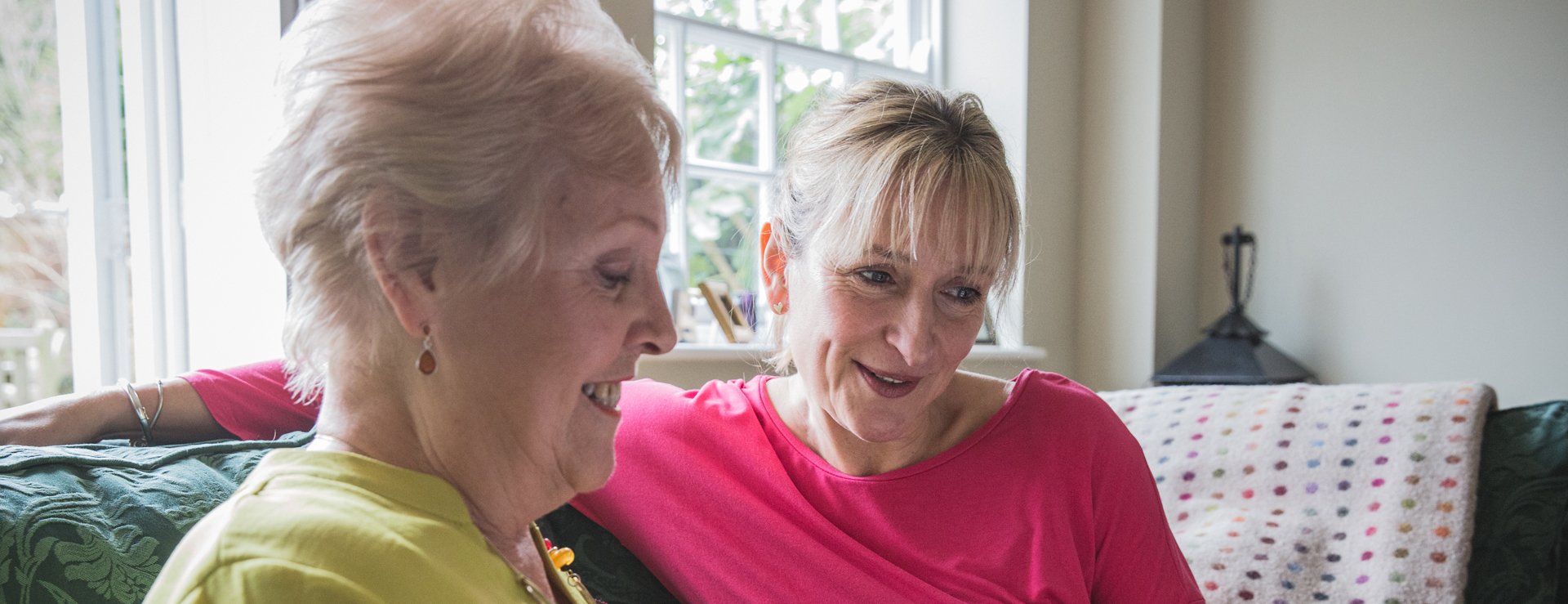When someone you care about is diagnosed with a progressive condition like dementia, it can take time to process what this means for both you and your loved one. Imagining what the future might bring can feel incredibly challenging. Despite preparing yourself, when the person eventually passes away, it can come as a shock, and there are many confusing emotions people experience at this time. Some people feel that it is a release for the individual and are comforted by the fact they are no longer suffering; others wish they had one more day. However you may feel, both reactions are perfectly normal and understandable. For many, grief can be especially challenging during the Christmas season. The holidays often bring
Read more
At Oxford Aunts, we understand the importance of compassionate and dedicated home carers in providing exceptional care and support to those who need it. But you may be wondering – what exactly is a home carer? A home carer is a professional dedicated to enriching the lives of those they care for. They often become essential to their client’s daily routines by offering practical assistance, emotional support, and a friendly presence. Whether it’s helping with personal care tasks, offering medication reminders, or simply engaging in heartfelt conversations, a home carer ensures that clients feel valued, respected, and genuinely cared for. Here we explore what a home carer is and the role of our dedicated and passionate carers in enhancing our
Read more
Personal alarms (or panic alarms) are an indispensable solution for maintaining the safety and independence of older adults that live at home alone. These compact and wearable devices allow you to contact emergency assistance at the touch of a button. This can be life-saving for the elderly with mobility or frailty concerns that are at risk for falls. Choosing the right personal alarm is an important decision that shouldn’t be taken lightly. It’s important to diligently research any personal alarm before purchasing to make sure it can meet the needs of you and your loved ones. You may also want to discuss your options with a doctor or licensed physical therapist. How do panic alarms work? Panic alarms, usually worn
Read more
The word ‘dementia’ is used to describe a set of symptoms that can include memory loss, difficulty problem-solving, reduced language skills, and behaviour changes. Dementia isn’t a disease; it’s an umbrella term for a set of symptoms caused by several different conditions, with Alzheimer’s disease being the most common. Learn more about what dementia is and its most common causes in our helpful guide. What is dementia? Dementia is a progressive condition, meaning it slowly gets worse over time. Symptoms like memory loss, problems communicating or finding the right words and confusion gradually get worse until they substantially affect everyday life. The most common symptoms of dementia include: Memory loss Communication and language difficulties Problems with reasoning or problem-solving Trouble
Read more
Dementia affects people in different ways and experiencing strong emotions like agitation, confusion and aggression are common. Although these behaviours can be challenging and distressing for family members and caregivers, it’s important to know why these behaviours occur and what you can do to help. Here you’ll learn what to do when a person with dementia is agitated, including plenty of tips from our dementia care experts. Agitation in dementia Agitation is a common and challenging behavioural symptom experienced by people living with dementia. It encompasses a range of distressing behaviours, including verbal or physical aggression, restlessness, and increased confusion. The brain of a person living with dementia undergoes changes that can lead to difficulties in communication and emotional regulation
Read more
Incorporating engaging activities into the daily lives of people with dementia can have a profound impact on their overall happiness and well-being. From creative pursuits and social interactions to virtual experiences online, these activities provide opportunities for cognitive stimulation, self-expression, and meaningful connection with others. Here are 32 activities for people with dementia designed to bring them joy and enhance their quality of life. Sensory stimulation activities Sensory boxes Creating a unique sensory box together is a great way to captivate the senses and encourage people with dementia to explore the world around them. Sensory or rummage boxes are boxes filled with a variety of textures, captivating scents, and intriguing objects. They can help people with dementia communicate or reminisce
Read more
Agitation, a distressing symptom commonly experienced by people living with dementia, can cause stress for both the person affected and their caregivers. But with the right person-centred approach and calming strategies, it’s possible to create a soothing environment that promotes a sense of calm and well-being. Drawing inspiration from our experienced caregivers and experts in the field, we’ve compiled a list of 10 proven methods to address agitation in people living with dementia. Each approach is tailored to provide a compassionate and person-centred approach, recognising the unique needs and challenges faced by those living with dementia. 1. Stay calm It can be upsetting when a loved one is feeling agitated or stressed and we can’t seem to meet or understand
Read more
Some people living with Alzimieher’s disease and other types of dementia experience difficulties in the late afternoon or early evening. This is known as ‘sundowning’ and it can lead to distressing symptoms such as agitation or confusion. Sundowning may continue into the night making it difficult for people with dementia to fall asleep or stay in bed. The behaviours associated with sundowning can happen at any stage of dementia but are more common during the middle and later stages. At Oxford Aunts, we understand how upsetting it can be when a loved one with dementia experiences sundowning. We support many families in Oxfordshire and its surrounding counties to manage this situation with our high-quality live-in care service for those who need dementia
Read more
As people are now living longer than ever, the number of people with dementia is on the rise. It is estimated that there are currently 850,000 people living with dementia in the UK alone, and this number is only expected to increase in the coming years. Dementia is not a disease itself. The term dementia is an umbrella term for a variety of conditions that cause a decline in cognitive function. People will experience their symptoms differently, but there are some common early warning signs of dementia everyone should be aware of. By recognising the early symptoms of dementia and obtaining a diagnosis, you can be assured that dementia treatment is arranged in good time and a plan created for the future
Read more
Dementia is an umbrella term that refers to a group of neurological conditions that affect the brain. There are over 100 types of dementia of which the major symptom is a gradual and progressive reduction in brain function over time. The most common causes of dementia include Alzheimer’s disease, vascular dementia and dementia with Lewy bodies. Although the risk of getting dementia increases as we age, people in their 40s and 50s can also have dementia. Every type of dementia is progressive meaning symptoms will gradually worsen over time. Despite the challenges presented by dementia, it is possible to live well at home with our expert dementia care from live-in care specialists. What are the different types of dementia? Alzheimer’s Disease Alzheimer’s
Read more













